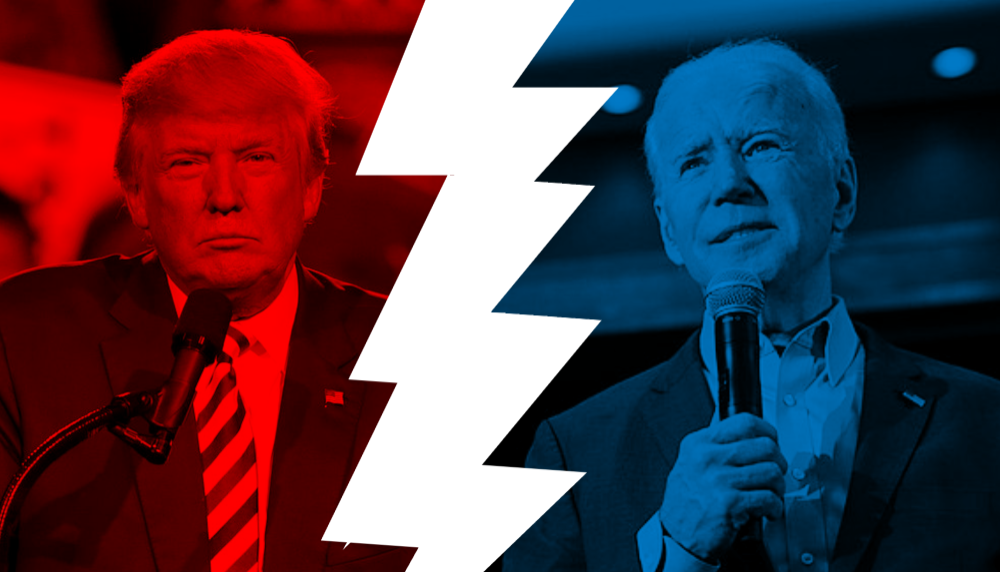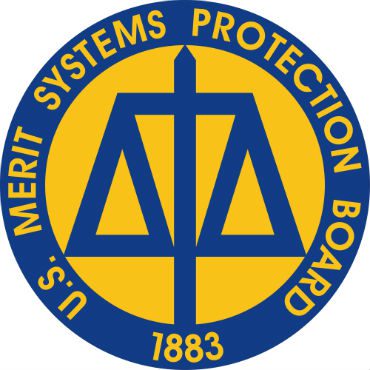Trump Vs. Biden: Federal Governance
 PEER is a non-partisan organization that does not take positions on Presidential elections. But we certainly do engage in objective analysis of different Administrations, which can help voters judge them later. At the very end of the Trump Administration, I wrote a blog that looked at twelve different criteria by which that Administration amounted to what I called a “dumpster fire” when it came to good governance.1 We now can compare the first two-plus years of the Biden Administration’s performance under the same criteria2:
PEER is a non-partisan organization that does not take positions on Presidential elections. But we certainly do engage in objective analysis of different Administrations, which can help voters judge them later. At the very end of the Trump Administration, I wrote a blog that looked at twelve different criteria by which that Administration amounted to what I called a “dumpster fire” when it came to good governance.1 We now can compare the first two-plus years of the Biden Administration’s performance under the same criteria2:
1. Political Influence on Expertise
Trump: The former President’s willingness to put his political agenda over scientific and medical expertise was most acutely displayed in his Administration’s botched response to the COVID-19 pandemic, based on Trump’s objective of minimizing the threat and his political goal of emphasizing individual rights rather than strong protections for public health.3 Politics also drove his comparable weakening of the U.S. response to global warming instead of proactively tackling it based on overwhelming science.
Biden: Biden let appropriate scientists lead on the pandemic response and he combated efforts to politicize mandates that were necessary to reduce the rate of infection. On global warming, he respected the scientific consensus by immediately reversing Trump’s withdrawal of the United States from the Paris Agreement and devoted major political capital to passing the Inflation Reduction Act, the strongest anti-global warming measure in U.S. history.
2. Agency Leadership Appointments
Trump: Several key bureaus from 2016 through 2020 were led by fringe, unconfirmed figures with conflicts of interest, often for several years. Michael Pendley’s tenure as the de facto Director of the Bureau of Land Management was a glaring example. There were several others. This could have been remedied by the process of Senate confirmation as required by the Constitution (Art. II, Sec. 2), but Trump routinely ignored this requirement. Additionally, he frequently allowed lower deputies and political appointees to act as the heads of various agencies. This left agencies “hollowed out” – short-staffed in key leadership slots – including, most tragically, the agencies responsible for the COVID pandemic response. Further, Trump’s actions were illegal under the Federal Vacancies Reform Act (FVRA) in many situations. Litigation resulted in at least five Federal District Court decisions throwing out actions by these improper acting officials.
Biden: In its first year the current Administration did present a few similar potential FVRA violations, particularly in the Interior Department.4 However, the vacancies were nowhere near the sweeping scale of the Trump violations and now are mostly, but not entirely, resolved.5 Additionally, the Government Accountability Office (GAO) identified three other relatively minor officials who were “acting” into 2023 past the date allowed under FVRA.6 None have led to court decisions invalidating any actions of Biden officials. There are no reports of key bureaus under Biden being led by fringe unconfirmed figures.
3. Leadership Nominee Qualifications
Trump: Several agency leaders nominated by Trump to the Senate for confirmation were unqualified for their positions, such as his 2017 nomination of Sam Clovis as USDA’s Chief Scientist despite his lacking basic science qualifications.
Biden: Searching for reports of unqualified nominees produces far fewer names under the Biden Administration. However, at least one case exists: the nominee to be Director of the U.S. Fish and Wildlife Service, Martha Williams, who was later confirmed by the Senate, despite lacking the specific “scientific education” qualification required by the agency’s organic act for serving in that office.7
4. Civil Service Protections

Trump: He issued a number of Executive Orders (EO) aimed at weakening civil service protections and eliminating them altogether for a broad swath of federal professionals. Further, his Administration failed to get Board nominees seated on the Merit Systems Protection Board (MSPB), therefore forcing the MSPB to stop functioning for lack of a quorum, a failing shared by the Senate in not confirming any nominees. As a result, personnel case appeals from administrative judges that address civil service violations have backed up by the 1,000s. This drastically weakened the MSPB as a protection for whistleblowers and others who suffered merit system abuses.
Biden: A Biden EO issued on his second day in office reversed all the prior unfavorable Trump personnel EOs.8 It provided essential, important relief. However, as with all EOs, it was incumbent on each Federal agency to determine how rapidly and comprehensively to implement the new EO. In two Interior personnel termination cases PEER handled, the harmful holdover effect of the Trump EO did not diminish during 2021 or 2022 regarding the use of oppressive 30 day “NODAPs” (Notice of Opportunity to Demonstrate Acceptable Performance), which the Biden EO had sought to jettison.9 On the MSPB, the new Administration named and obtained confirmation of the needed Board members, but now a roughly three-year backlog exists before appeals will be decided.
5. The Hatch Act
Trump: Several times, the Office of Special Counsel (OSC), charged with enforcing the Hatch Act, warned Trump personnel about specific violations involving improper public statements aimed at influencing elections. Former White House Counselor Kellyanne Conway’s transgressions were most notorious; she basically laughed off the OSC’s charges.
Biden: Reviewing the OSC website, as well as searching news reports, reveals several Hatch Act violations since Biden took office, including by his Chief of Staff Ron Klain, Energy Secretary Jennifer Granholm, Health and Human Services Secretary Xavier Becerra, and others.10 While it is difficult to make objective comparisons for this criterion, the Biden Administration violations do not appear to be as egregious, repeated, or willful as the Trump Administration’s.
6. Deference to Inspectors General (IG) and the GAO
Trump: The agency IGs are crucial “referees” of good Federal governance. Mr. Trump fired several IGs, e.g., for the State and Defense Departments, for no apparent reason other than that his agency heads were under threat from IG investigations. And when the GAO issued adverse opinions, several were ignored by the Trump Administration.
Biden: President Biden has been slower than many desire in naming nominees for at least six vacant IG positions, including, for example, the crucial Treasury and State Department IGs.11 But he has respected his campaign pledge to not fire any IGs or meddle with their positions. As far as the GAO, there are instances of the current Administration disagreeing with it on some relatively minor matters, but nowhere near the level of rejection of GAO opinions expressed by the Trump Administration.
7. Freedom of Information Act (FOIA)
 Trump: The Trump Administration was the worst in memory in terms of politicizing FOIA response processes, such as allowing affected Interior officials to review and change or redact responses before they went out — so-called “awareness reviews”12 – and, further, in not delivering responses within the time deadlines set by the statute.
Trump: The Trump Administration was the worst in memory in terms of politicizing FOIA response processes, such as allowing affected Interior officials to review and change or redact responses before they went out — so-called “awareness reviews”12 – and, further, in not delivering responses within the time deadlines set by the statute.
Biden: Due to the massive number – many thousands – of FOIA requests across all Federal agencies, it is not possible to quantitatively assess whether response times have improved under the Biden Administration. PEER’s experience has remained consistent since Trump regarding the abuse of redactions to withhold documents or key parts of documents, particularly for the “deliberative process privilege”. Fortunately, the practice of awareness reviews appears to have been shelved. One unfortunate development is the announcement by the Administration of the coming demise at the end of FY 2023 of www.foiaonline.gov, which began in 2012. This convenient filing and tracking website enables broader access to produced records and easier response performance comparisons among agencies.13
8. Federal Advisory Committee Act (FACA)
Trump: Trump set up several biased industry-dominated advisory committees, terminated an unprecedented number of pre-existing FACA committees, and created some illegal advisory committees that failed to comply with FACA, such as the Interior Department’s convening an industry-driven committee to promote electronic bicycles (e-bikes) on Federal public lands.
Biden: A search of news reports does not reveal any major FACA violations by the Biden Administration.
9. Scientific integrity
Trump: In a number of high-profile scientific integrity violations, such as regulating Waters of the United States (WOTUS), the Trump environmental agencies suppressed the work of career Federal scientists and dismissed their findings.
Biden: His start was promising, but a highly touted reform of scientific integrity processes within the agencies has ground to a largely ineffectual conclusion so far. In its review effort, led by the Office of Science and Technology Policy, the Biden Administration has still failed to articulate uniformly clear standards or create a strong enforcement process for when integrity violations occur. PEER has continued to advocate extensively on this.14
10. Office of Government Ethics
Trump: Several abuses were concentrated early in the Trump presidency when he and his family, as well as many Cabinet members, ignored long-standing ethics guidelines.15
Biden: On his first day in office Biden issued a new EO on ethics.16 That strengthening provision likely led to the fact that there have been no reported major ethical violations by the Cabinet or other lead officers of his Administration. A detailed recent analysis by Citizens for Responsibility and Ethics in Washington (CREW) found the current Administration was far better at filing financial disclosures than its predecessor.17
11. Government Shutdowns
Trump: Two shutdowns occurred under Trump, including the notorious 35-day shutdown of 2018-2019, the longest in U.S. history. Various improper exceptions were allowed so that a few favored government activities could continue during that long closure.
Biden: To date there have been no shutdowns under Biden.
We labeled the criteria for former President Trump the “Dirty Dozen” because PEER was compelled to litigate or conduct advocacy against his Administration related to almost every one of those issues. The number of criteria under which PEER has been compelled to conduct focused work against the Biden Administration have been far fewer. Primarily, they are the FOIA and Scientific Integrity criteria that remain thorns in the side of good governance. We remain also concerned about the number of Hatch Act violations and the legally questionable leadership of some environmental bureaus.
While the current Administration is not perfect by any means, its performance far exceeds that of the Trump Administration. Of course, President Biden thankfully lacks the outright hostility to Federal employees and to many basic governing principles that Mr. Trump openly flaunted. It is incumbent on NGOs that focus on good governance and protecting Federal employees, such as PEER, CREW, GAP, and others, to maintain pressure on no matter who is President so that the public is well-served by the agencies and so Federal employees can aspire to reasonably positive morale, rather than being trashed by their own Chief Executive.
Then there is that little matter of Mr. Trump’s retention of classified records at Mar al Lago …….
![]() Peter Jenkins is PEER’s senior counsel.
Peter Jenkins is PEER’s senior counsel.
- See https://peer.org/blog-the-dumpster-fire-presidency-in-review/, which gives a fuller explanation of the Trump Administration’s performance.
- The former twelve criteria are now edited down to eleven.
- See GAO report on the pandemic response: https://www.washingtonpost.com/politics/gao-trump-covid-biden/2021/02/02/38f0a0a8-65a4-11eb-bf81-c618c88ed605_story.html
- See https://www.govexec.com/management/2021/12/bidens-leadership-vacancies-interior-recall-trumps-track-record/359754/
- The Office of Surface Mining Reclamation and Enforcement has remained without a confirmed Director for almost 2.5 years, https://www.osmre.gov/about/offices ; it is run by its Deputy Director.
- See https://thehill.com/homenews/administration/3850170-gao-finds-3-biden-administration-officials-are-in-their-acting-positions-unlawfully/
- See https://peer.org/blog-concern-over-presidents-choice-to-head-federal-wildlife-agency/ and https://peer.org/wildlife-directors-qualifications-challenged/. For a poorly qualified and abusive Biden appointee, see https://www.politico.com/news/2022/02/07/eric-lander-white-house-investigation-00006077.
- See https://www.whitehouse.gov/briefing-room/presidential-actions/2021/01/22/executive-order-protecting-the-federal-workforce/
- See: https://subscriber.politicopro.com/article/eenews/2022/04/26/trump-firing-policy-still-on-the-books-at-interior-doe-00027489.
- The most notorious recent Hatch Action violations were repeated acts to oppose an election candidate by the Biden-appointed U.S. Attorney for the District of Massachusetts, Rachael Rollins: https://osc.gov/News/Pages/22-10-OSC-Report-Rachael-Rollins-Hatch-Act.aspx.
- See https://www.hassan.senate.gov/news/press-releases/grassley-hassan-urge-potus-to-fill-ig-vacancies-protect-taxpayer-dollars and https://www.citizensforethics.org/legal-action/legal-complaints/biden-must-take-steps-to-fill-state-inspector-general-vacancy/
- See https://www.govexec.com/oversight/2022/03/watchdog-report-interior-foia-trump-zinke/362731/
- See https://foiaonline.gov/resources/Public%20-%20FAQs/FOIAonline%20Decommissioning%20FAQ.pdf
- See https://peer.org/white-house-urged-to-tighten-scientific-integrity-policy/
- See www.newyorker.com/news/ryan-lizza/how-trump-broke-the-office-of-government-ethics
- See https://www.whitehouse.gov/briefing-room/presidential-actions/2021/01/20/executive-order-ethics-commitments-by-executive-branch-personnel/
- See https://www.citizensforethics.org/reports-investigations/crew-reports/biden-administration-financial-disclosures-show-strong-pattern-of-compliance/